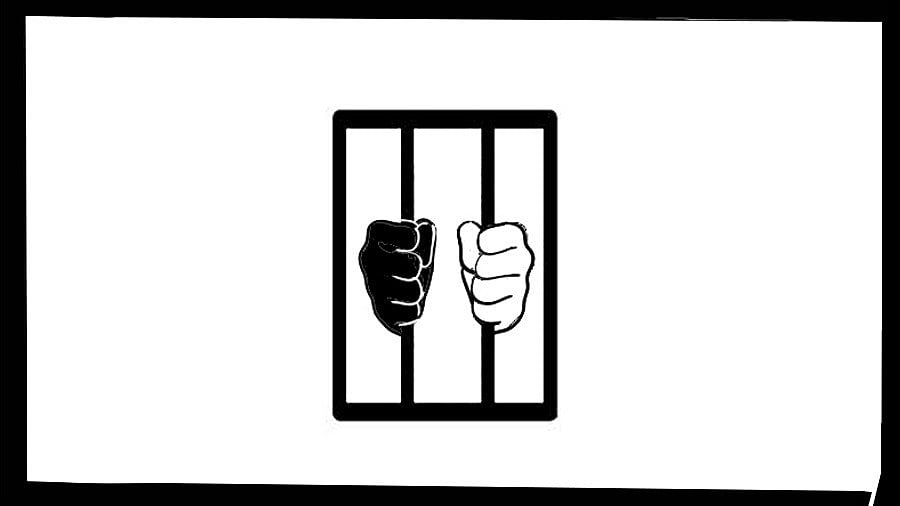
Last month, the Supreme Court granted state governments two more weeks to file compliance reports detailing the action taken to end caste-based discriminatory practices in jails across India. In October 2024, a three-judge bench of the Supreme Court delivered a landmark judgment, striking down provisions in several States’ Prison Manuals that sanctioned casteism and segregation in prisons.
The judgement was delivered in a Writ Petition (WP) filed by journalist Sukanya Shantha who highlighted the widespread practice of discriminating between prisoners based on their caste that has persisted since colonial times. Prison manuals particularly provided for caste-based work allocation for inmates and segregation of barracks.
The petitioner also highlighted the discriminatory treatment meted out to prisoners belonging to denotified tribes (called ‘criminal tribes’ during the British Raj) because they were habitual offenders.
The Petitioner prayed for the repealing of all such offensive provisions in all prison manuals, the Model Prison Manual, 2016, and the Model Prisons and Correctional Services Act, 2023 because they violated the constitutional guarantees of equal treatment by the law and the prohibition of discrimination based on caste and other divisive criteria.
The Court delved into how the Constitution was constructed on the foundational values of equality, non-discrimination, equality of opportunity, affirmative action, and abolition of untouchability.
The judges described how constitutional morality sought to replace the colonial philosophy of deepening and perpetuating India’s social evils. They also recognised, once again, the all-pervasive nature of caste-based discrimination in society, whether in the spheres of education and employment or access to resources, and agreed with the petitioner that such offensive practices are reproduced in prisons.
Prison manuals in the states and Union Territories regulate various aspects of jail administration such as listing the duties of prison officers, the manner of admission and release of prisoners, securing their health, and even providing gainful employment inside jails during their term of incarceration.
However, these manuals also required discriminatory treatment of prisoners. For example, they dictated that inmates belonging to lower castes and communities should only be asked to perform menial duties such as sweeping and cleaning toilets. Only prisoners belonging to the higher castes were to be assigned kitchen duties because of the entrenched practice of abhorring food cooked by people of the lower castes. Even after 75 years of independence, these prison manuals reflected the colonial hangover that “forcing a man of higher caste to work at any trade would disgrace him and his family”, the Court lamented.
The Supreme Court held that the discriminatory portions of prison manuals are violative of Articles 14, 15, 17, 21, and 23, which are at the heart of our Constitution and guarantee equality, non-discriminatory treatment to all, and outlaw untouchability. The states were directed to revise their prison manuals and accompanying rules to remove all discriminatory provisions within three months.
The Union Government was directed to make similar changes in the Model Prison Manual and the Model Prisons Correctional Services Act, 2023. The District Legal Services Authorities and the Board of Visitors which conduct regular prison inspections were directed to look out for caste-based discrimination and submit a joint report to the National Legal Services Authority.
In 2022, Commonwealth Human Rights Initiative (CHRI), a Delhi-based NGO that works for the improvement of prison conditions and their management, conducted an in-depth study of the conditions of prisons in Karnataka, in collaboration with the Karnataka State Legal Services Authority.
While interviewing prison inmates, we found that there was a hidden division of labour along the lines of caste here as well. Some inmates told us that they were forced into cleaning work because they belonged to marginalised castes. Our study team also found informal arrangements where higher-caste prisoners assigned with toilet-cleaning duties would pay lower-caste prisoners to substitute for them. Our study showed that caste-based discriminatory practices rooted in age-old notions of purity and pollution persisted informally within prisons even though Karnataka’s Prison Manual did not sanction such subjugation.
An unintended fallout
The Supreme Court’s institutional approach towards ending caste-based discrimination in prisons, laudable as it is, does not sufficiently address such informal practices that perpetuate casteism in jails. Furthermore, it unwittingly throws a spanner in the works of collecting caste-wise data about undertrials and convicts by the National Crime Records Bureau (NCRB). If, according to the Court’s directions, caste-related information about prisoners is not to be recorded in prison registers, this important dataset which NCRB publishes annually in the form of Prison Statistics India reports would be lost to policymakers.
A large number of prisoners belong to the Scheduled Castes, Scheduled Tribes, and religious minorities. In the absence of official data, policy measures for improving access to legal aid and legal representation for these disadvantaged sections would be impossible to craft. Thankfully, in November last year, the Court clarified that its directions would not come in NCRB’s way of collecting caste-based data. Last month, it agreed to make NCRB a party to the ongoing case to file a report about how it was going about its job of collecting demographic data of prisoners.
The Court’s objective of ensuring substantive equality in prisons irrespective of the caste status of their inmates will take some time to be realised. Measures have to be put in place to address discrimination inside jails. Merely removing certain provisions from the jail manuals and related rules will not put an end to the informal mechanisms by which caste identities are discovered and perpetuated within those enclosed spaces.
This issue requires in-depth discussion with all stakeholders including organisations working for prison reforms and prisoners’ rights. Educational programmes will have to be implemented to change discriminatory behaviour inside prisons.
(The writer works with the Access to Justice – Prison Reforms Programme of Commonwealth Human Rights Initiative)